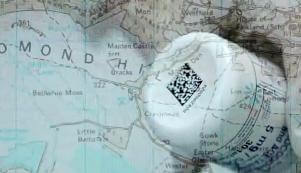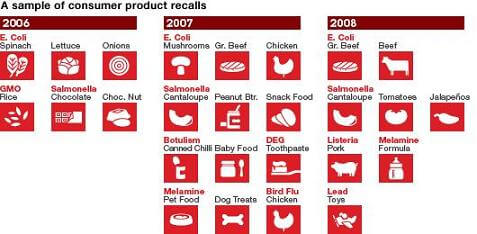
IBM may be a big scary corporation, but there are bigger and scarier worries out there. Among them is counterfeit prescription drugs. According to the computer giant, around 10% of the medication consumed globally is a forgery. Looks the same, tastes the same, but it could kill you. As more countries, like China and India and Brazil, get into the development and distribution of prescription drugs, the volume of international sales will increase. As will counterfeit production. Testing every pill before it is consumed is probably impractical, but tracking every pill may not be. IBM is developing the software that, in conjunction with barcodes, GPS sensors, and environmental controls, could help us ensure that every drug we take came from the manufacturers we trust and in the condition they required. It’s the Internet of Things for prescription drugs, and it could save lives and streamline inventory all over the world. Watch IBM’s executives explain their ideas in the video below. Universal tracking of medications, food, and more could be upon us very soon.
Think about this: there are probably around 1 billion people on the internet. Most are sending email, checking statuses on Facebook, and posting weird photos to /b/ on 4Chan. In the future billions of more people are going to come online, but they are likely to be dwarfed in number by an even larger group: smart objects. Tiny GPS sensors, QC barcodes, and environmental sensors are going to turn every shipment of goods (from apples to stereos) into a hive of digital information that is constantly uploaded to the net. Special software will be needed to track the trillions (yes, trillions) of objects that will compose this Internet of Things. IBM is looking to tackle that job head on, designing the systems that will organize data from objects and control things like temperature and humidity in shipping containers to optimize freshness. It’s a daunting task, but as IBM describes in the video below, the benefits are great. And the alternative is chaos.
With prescription medications, the cost-benefit of tracking is measured not just in dollar amounts, but in lives saved. This means that companies are more likely to invest in the technology to track drugs in the near future. The simplest tracking methods, like rigorous monitoring of barcodes, have been in use for several years in various stages. Next generation solutions will include tiny GPS sensors embedded in every drug container so that the history of their travels can be closely watched. If a shipment of drugs arrives that doesn’t have a complete verifiable history, chances are it’s counterfeit. Add in environmental sensors (either on small drug containers or larger shipping containers) and you can optimize the condition that the drugs arrive in.
These same solutions can be applied to another widely shipped good: food. Like prescription drugs, food has a cost-benefit analysis that includes lives saved. Salmonella outbreaks and E. coli contamination regularly make the news, and if we could track global food shipments better we may be able to stave off these outbreaks quickly and effectively. Again, some tracking methods are already deployed, IBM itself has been running a trial food tracing project out of Manitoba Canada for the last few years, but the level of sophistication can be raised considerably. According to IBM, less than 1% of food is actually inspected before it enters the United States. In the absence of complete inspection, complete tracking may help us improve quality of food. In fact, environmental controls tied into sensors attached to food containers would have even more important impacts on food delivery than they do with drug delivery. There are billions of dollars and millions of lives that could be saved by better food tracking every year. Improved supply chain efficiency could also reduce the carbon footprint for shipping food around the world. Of course, we probably could save nearly as much money, lives, and energy by buying food from local farmers…but I digress.

Tracking prescription drugs and food are just two of the dozens of the opportunities that IBM is pursuing in relation to the developing Internet of Things. Their ongoing Smarter Planet initiative is looking to revolutionize every major computerized field through the use of smart objects. With a powerhouse like IBM pursuing IOT solutions, you can be sure that we’ll see many of them deployed in the years ahead. Actually, IBM is pursuing many of them on a trial basis already. A global network of smart objects is coming, though, and with it will arrive a flood of data that will make our current online activity seem like little more than a trickle. It will take the might of corporations like IBM, or the innovative creativity of smaller competitors, to channel that flood into a resource that transforms our lives. Better medicines, healthier foods, and more could all be arriving soon. The Internet of Things is near…and get nearer everyday.
[image and video credits: IBM]
[sources: IBM Smarter Planet]



